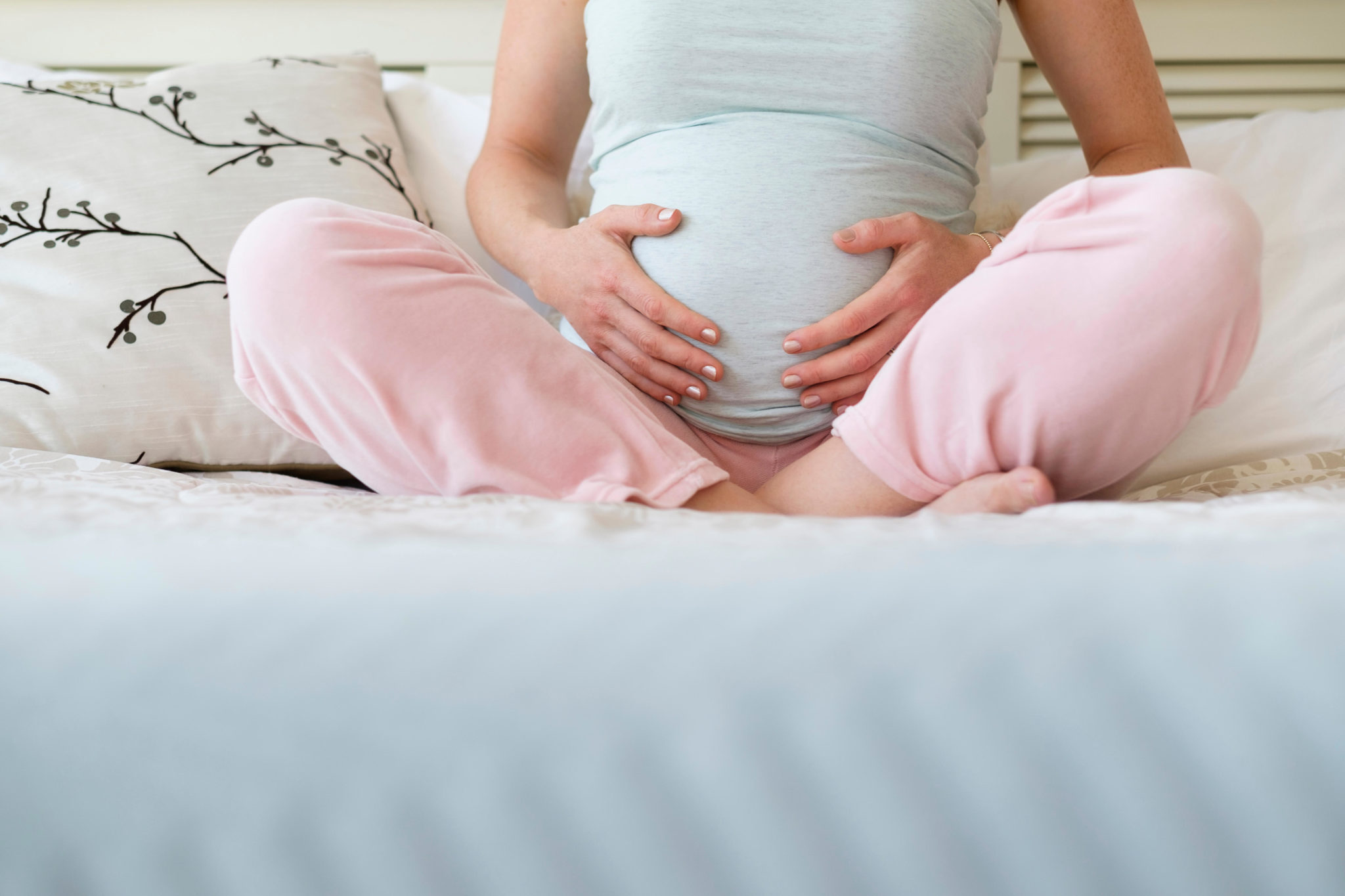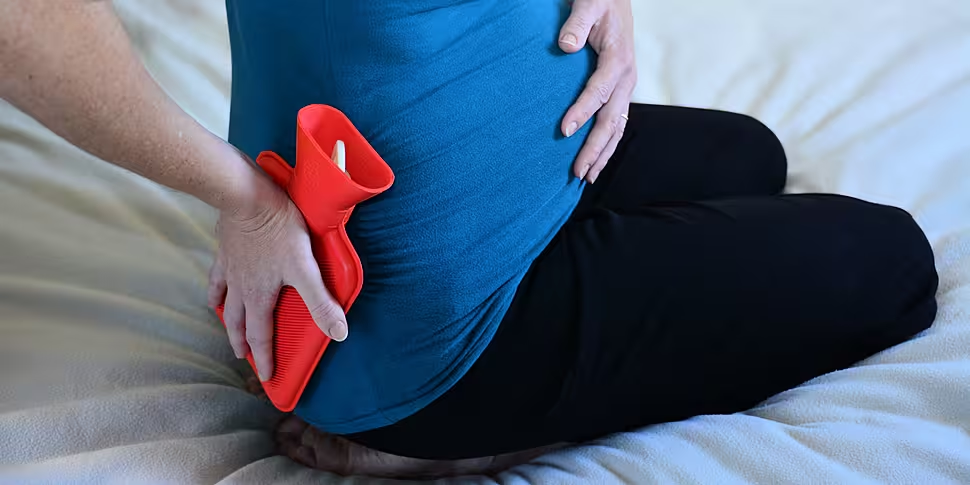On this week’s Making Babies segment, Master of the National Maternity Hospital Professor Shane Higgins ran through some of the most common issues women can face during pregnancy.
One of the most well-known symptoms of pregnancy is morning sickness, in which women experience intermittent nausea and vomiting.
Prof Higgins told Lunchtime Live that it is largely down to the luck of the draw whether patients will suffer from this issue.
“Patients who are pregnant with multiple pregnancies are more likely, but otherwise, it is absolutely random,” he said.
“Even for the same patient in successive pregnancies, they may be violently unwell in one and completely normal in the other.”
However, if a patient manages to get past 17 weeks without experiencing morning sickness, Prof Higgins said they “should be home and dry”.
 Pregnant woman sitting on bed
Pregnant woman sitting on bedOther symptoms can also include gestational diabetes, which is a form of the disease that is specifically picked up during pregnancy.
“Pregnancy is what’s referred to as a ‘diabetogenic state’, which means women will tend to run on high sugars anyways for the benefit of the baby,” Prof Higgins said.
“But when they become uncontrolled and you have the highs and lows as you have with any diabetic condition – and there are very specific tests to determine whether you have it or not – then you need to go on treatment.
“It starts with diet and you see a diabetic team in your hospital and they tell you what to eat, what not to eat, how to monitor your blood sugars.”
Blood pressure disease
Prof Higgins said if this fails, patients are often prescribed metformin, or insulin in the latter stages of the pregnancy.
He said that the condition “almost entirely resolves” after the baby is born and stressed that patients cannot cause themselves to get gestational diabetes, only control it after it develops.
Other issues patients can suffer from include preeclampsia, which is a blood pressure disease unique to pregnancy.
Main image: Pregnant woman suffering from back pain. copyspace









